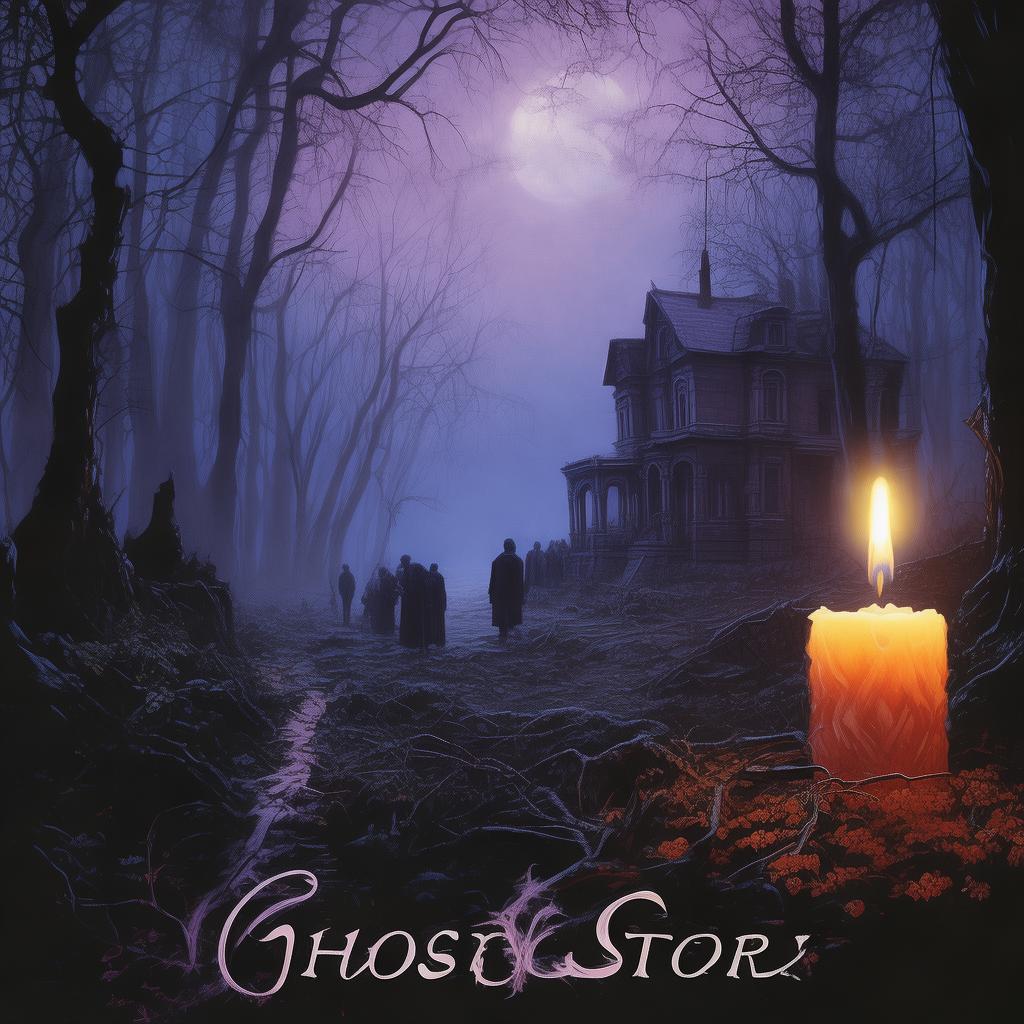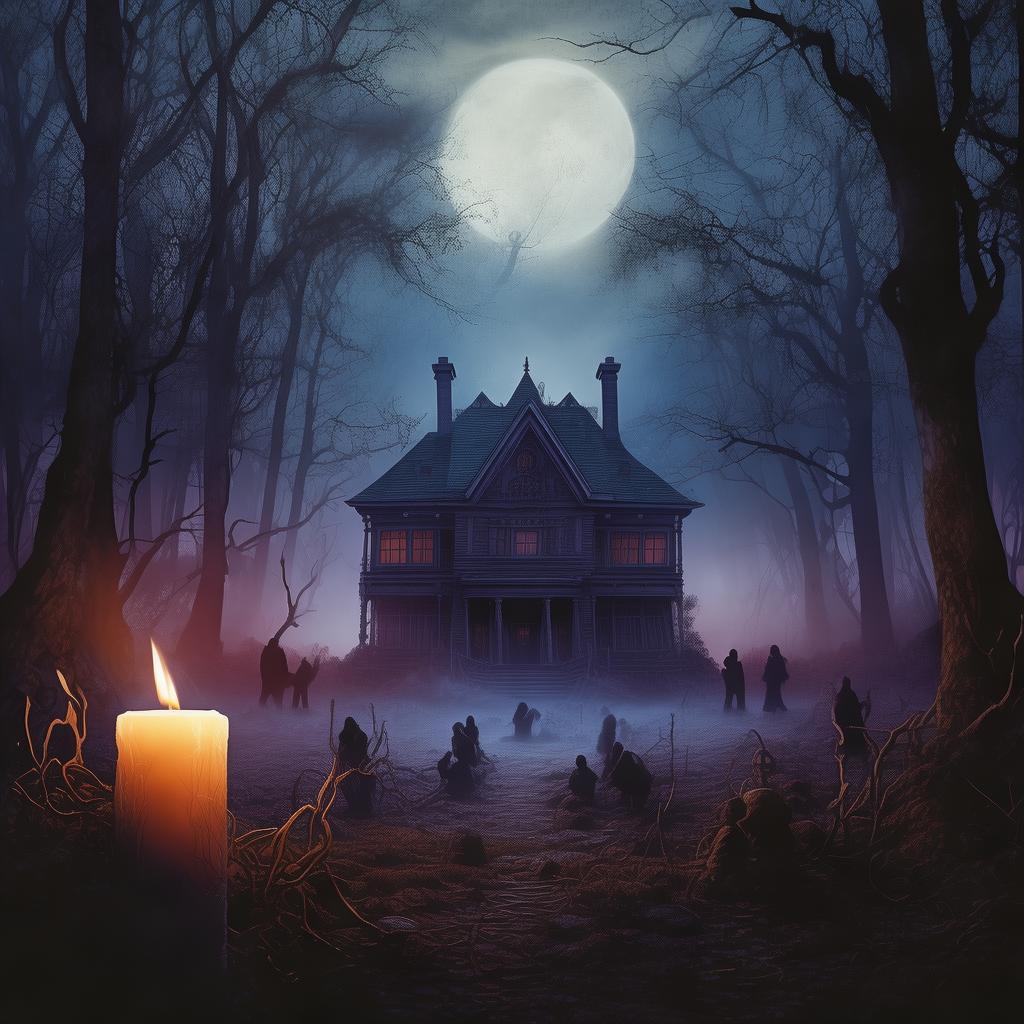The Vanishing Poet Zhang Jingjing's Sinister Inspiration
In the heart of the ancient village of Jingzhu, nestled between rolling hills and whispering bamboo groves, there lived a poet named Zhang Jingjing. Known for his haunting verses and cryptic inspirations, he had become a local legend. It was said that the villagers would often find their thoughts and emotions reflected in his poems, as if they had been lifted from their very souls.
Li Wei, a young and ambitious writer, had heard tales of Zhang Jingjing's eerie inspirations. One rainy evening, driven by curiosity and a desire to craft a story that would captivate readers, Li Wei decided to visit the old poet's house. The house, a dilapidated structure on the edge of the village, seemed to beckon with an ominous allure.
As Li Wei approached the house, the rain began to pour harder, the wind howling through the cracks in the wooden walls. The door creaked open as if of its own volition, and Li Wei stepped inside, his heart pounding with a mix of fear and excitement. The interior was dimly lit by a flickering candle, casting eerie shadows across the room. A stack of old books and a weathered typewriter sat on a wooden desk, surrounded by scattered sheets of paper with cryptic poems.
Li Wei's eyes were drawn to a particular poem that read:
In the twilight of the moon,
A shadow dances on the wall,
The heart of the writer beats,
With the rhythm of the fall.
Intrigued, Li Wei began to flip through the poems, each one more eerie than the last. He felt a strange connection to the words, as if they were speaking directly to him. As he continued to read, a chill ran down his spine. The poems seemed to speak of a tragic past, of love lost and lives torn apart.

Determined to uncover the story behind these poems, Li Wei decided to spend the night in the old poet's house. He set up a makeshift bed on the floor, and as he lay there, the rain continued to pour, the sound of it a constant companion. He couldn't shake the feeling that someone—or something—was watching him.
The next morning, as the sun began to rise, Li Wei felt a sudden urge to explore the village. He wandered through the narrow alleys, his footsteps echoing off the stone walls. He met an elderly villager who, upon hearing Li Wei's story, shared a tale that chilled him to the bone.
The villager spoke of a young woman named Hua, who had once lived in the village. She was a beautiful and kind-hearted girl, known for her talent with poetry. One day, a mysterious man appeared in the village, and he soon became Hua's lover. But as their love blossomed, so did a dark secret. The man was a supernatural being, and his love for Hua was as fickle as the wind.
One night, Hua vanished without a trace. The villagers searched for her for days, but she was never found. It was said that her spirit still haunted the village, seeking her lost love.
Li Wei's mind raced with the thought of Hua's spirit. He couldn't shake the feeling that she was somehow connected to Zhang Jingjing's poems. Determined to uncover the truth, Li Wei returned to the old poet's house, where he discovered a hidden room behind the bookshelf.
The room was filled with old photographs and letters, all of which spoke of Hua's tragic story. As he read through the documents, Li Wei found a letter from Zhang Jingjing to Hua, in which he confessed his love for her. It was then that he realized the poems were not just a reflection of the villagers' emotions, but of Zhang Jingjing's own unrequited love for Hua.
Li Wei spent the night in the hidden room, his mind filled with the ghostly whispers of Hua's spirit. As dawn approached, he felt a presence near him. He turned to see a figure standing in the doorway, a young woman with long, flowing hair and eyes filled with sorrow.
It was Hua, come to seek closure. She spoke of her love for Zhang Jingjing and the pain of her separation from him. As she spoke, Li Wei realized that her spirit had been the one guiding him through the village, the poems the key to unlocking her story.
In the end, Li Wei decided to write a novel based on Hua's story, using the poems as inspiration. He hoped that by sharing her tale, he could give her spirit peace. As he finished the book, he felt a sense of closure, the weight of the village's secrets lifted from his shoulders.
The village of Jingzhu, however, remained shrouded in mystery. The old poet's house stood as a testament to the past, and the whispering bamboo groves still echoed with the sound of Hua's spirit. Li Wei's novel became a bestseller, but the truth of Hua's story remained a secret known only to those who dared to delve into the eerie inspirations of Zhang Jingjing.
✨ Original Statement ✨
All articles published on this website (including but not limited to text, images, videos, and other content) are original or authorized for reposting and are protected by relevant laws. Without the explicit written permission of this website, no individual or organization may copy, modify, repost, or use the content for commercial purposes.
If you need to quote or cooperate, please contact this site for authorization. We reserve the right to pursue legal responsibility for any unauthorized use.
Hereby declared.









